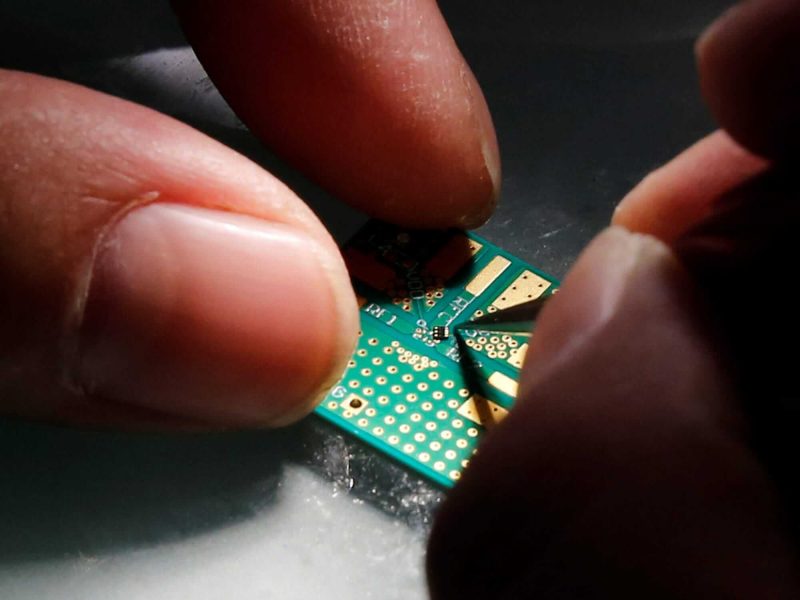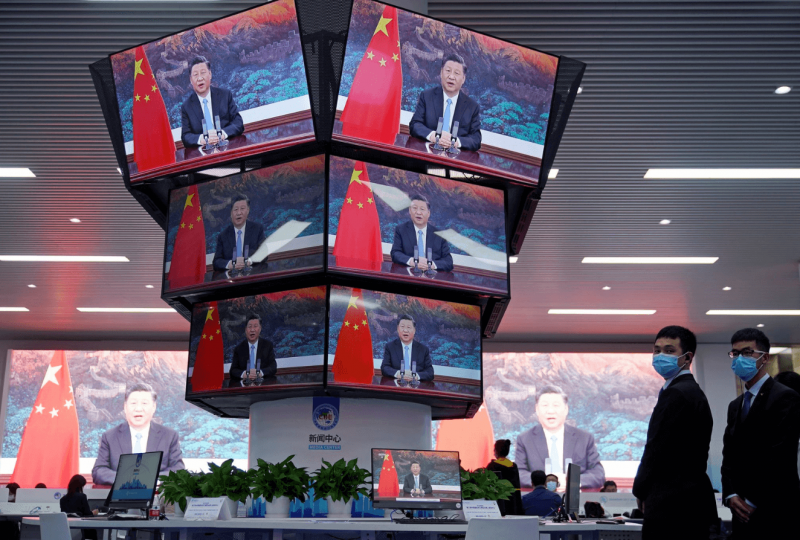Semiconductor Sales To Russia Banned, But That Shouldn’t Hurt Intel, AMD, And Other Chip Makers
Feb 28, 2022

The majority of chip stocks fell on Monday morning, although analysts believe Russian semiconductor sales are likely too small to matter to big chip producers.
Semiconductor firms are prohibiting sales to Russia as a result of the country's invasion of Ukraine, but experts believe the impact would be minimal.
On Monday, as Russian forces continued to bombard Ukraine's capital Kyiv, the broader market fell as global sanctions against Russia grew, including a push to exclude Russia from the SWIFT interbank messaging network and the Treasury Department's prohibition on doing business with Russia's central bank.
After Russian President Vladimir Putin started the invasion of Ukraine, the semiconductor industry joined the growing chorus of companies refusing to do business with Russia, and most chip stocks fell Monday, with the PHLX Semiconductor Index finishing down 0.7%, compared to a 0.4% gain on the tech-heavy Nasdaq Composite Index.
Analysts, though, were not concerned, with Bernstein analyst Stacy Rasgon noting that Russia is a "de minimis direct customer of semiconductors by itself," citing a Semiconductor Industry Association report.
The SIA claimed last week in a statement that Russia accounted for less than 0.1% of worldwide chip sales, which reached a record $555.9 billion in 2021, implying that Russia accounted for less than $560 million in sales last year.
Semiconductor sales have surpassed $500 billion for the first time and are anticipated to rise further.
Rasgon pointed out that Russia does not rank high in any other technology category.
"Russia accounts for less than 2% of worldwide PC shipments, 2% of mobile and smartphone shipments, 1% of server shipments, and 2% of car shipments," Rasgon said. "As a result, we do not anticipate that sanctions and export limits imposed on Russia would have any substantial effect on the different end markets that are important drivers of semiconductor demand."
According to SIA, Russia accounted for approximately $50.3 billion of the global $4.47 trillion information and communication technology industry, or little more than 0.1%.
When Russia invaded Ukraine, the Bureau of Industry and Security of the United States Commerce Department placed sweeping export limits on Russia, while the Treasury Department's Office of Foreign Assets Control slapped "unprecedented" sanctions. Intel Corp. confirmed that it is complying with the restrictions, while AMD is reportedly halting Russian shipments, and Taiwan Semiconductor Manufacturing Co. has reportedly warned Russian chip makers that work with them may be suspended.
"Intel complies with all relevant export rules and restrictions in the countries in which it operates, including new OFAC penalties and BIS requirements," an Intel representative said. "Our priority is to ensure company continuity while minimizing inconveniences for our personnel."
AMD, TSMC, and Nvidia, the top U.S. chip manufacturer by market valuation, have yet to react to requests for comment. AMD shares were up 1.9% on Monday, while Intel finished down less than 0.1%, Nvidia shares increased 0.9%, and TSMC shares sank 3.8% in the United States.




